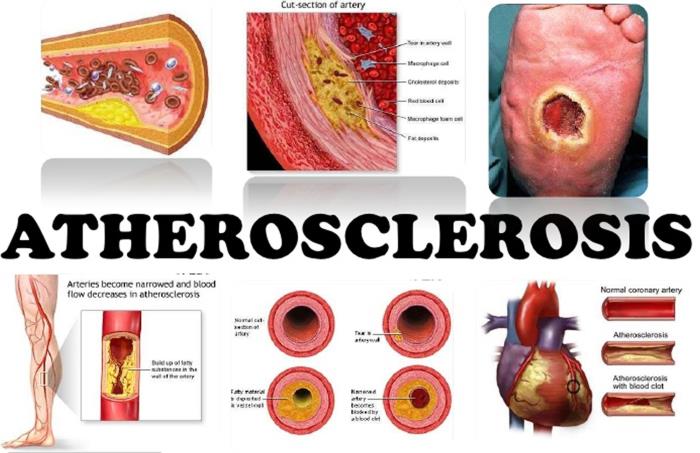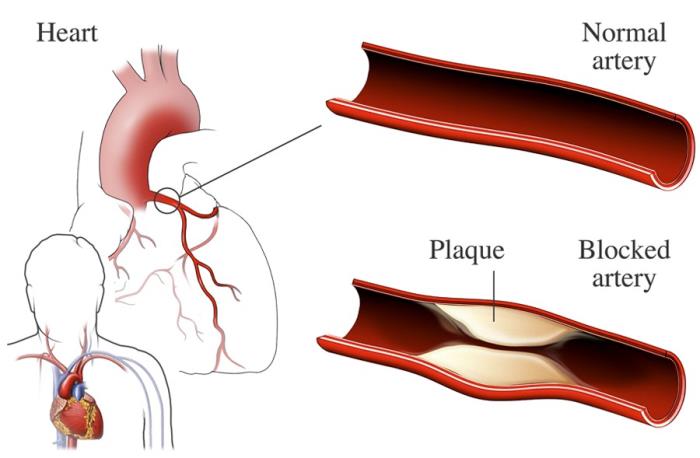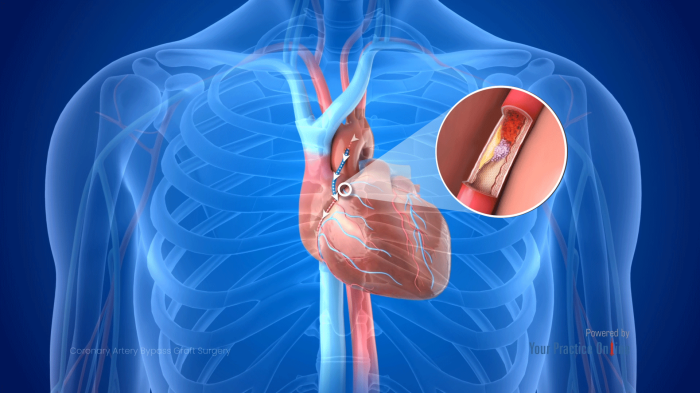Heart bypass surgery, also known as coronary artery bypass grafting (CABG), is a procedure that aims to improve blood flow to the heart by rerouting blood around blocked or narrowed arteries. During the surgery, a healthy blood vessel from another part of the body is grafted to create a new pathway for blood flow, bypassing the obstructed section of the coronary artery. This procedure is often recommended for patients with severe coronary artery disease (CAD) to relieve symptoms like chest pain, reduce the risk of heart attack, and improve overall heart function.
Understanding Coronary Artery Disease (CAD) and Its Impact
Coronary artery disease (CAD) is a condition in which the coronary arteries, responsible for supplying oxygen-rich blood to the heart muscle, become narrowed or blocked. This occurs when fatty deposits, or plaques, accumulate on the arterial walls, a process known as atherosclerosis. CAD can lead to serious health issues, including angina (chest pain), shortness of breath, heart attacks, and, if left untreated, heart failure. As one of the leading causes of bypass surgery, CAD underscores the need for effective intervention to restore adequate blood flow to the heart.
Atherosclerosis: The Primary Cause of Blocked Arteries
Atherosclerosis is the buildup of fatty deposits, cholesterol, and other substances along the walls of arteries, forming plaques that can restrict blood flow. Over time, these plaques can harden, narrow the arteries, and increase the risk of blockages that reduce or stop blood flow to vital organs. When atherosclerosis affects the coronary arteries, it can lead to coronary artery disease, heightening the need for heart bypass surgery to restore circulation and prevent complications such as heart attacks.

High Cholesterol: How It Contributes to Heart Blockages
High cholesterol, particularly elevated low-density lipoprotein (LDL) cholesterol, plays a significant role in the development of atherosclerosis and coronary artery disease. Excess LDL cholesterol can deposit along the arterial walls, forming plaques that narrow or block blood flow to the heart. This buildup increases the likelihood of severe blockages that may necessitate heart bypass surgery, as well as the risk of heart attack if the plaque ruptures.
Hypertension (High Blood Pressure) and Heart Bypass Risk
Hypertension, or high blood pressure, is a condition that increases the force of blood against arterial walls, causing the arteries to weaken and become more prone to damage. Over time, this can accelerate the process of atherosclerosis, contributing to coronary artery disease and increasing the risk of severe artery blockages. Uncontrolled hypertension is a key risk factor for heart bypass surgery, as it often exacerbates other risk factors like atherosclerosis and high cholesterol, making surgical intervention necessary.
Diabetes as a Risk Factor for Coronary Artery Disease
Diabetes is associated with an increased risk of coronary artery disease due to its impact on blood vessels and the tendency to promote atherosclerosis. High blood sugar levels can damage blood vessels over time, leading to the buildup of plaque in the arteries. Diabetic patients are at a higher risk of artery blockages, which can limit blood flow to the heart, making them more likely to require heart bypass surgery to restore adequate circulation and prevent heart complications.

The Role of Obesity in Heart Health and Surgery Need
Obesity contributes to multiple risk factors for coronary artery disease, including high cholesterol, hypertension, and diabetes. Excess body weight increases strain on the heart, leads to higher blood pressure, and promotes fat accumulation in blood vessels, accelerating atherosclerosis. As a result, obese individuals are at a greater risk of developing severe artery blockages that may necessitate heart bypass surgery to improve blood flow and reduce heart attack risk. Addressing obesity can significantly reduce the likelihood of needing heart-related surgeries and improve overall cardiovascular health.
Family History and Genetic Predisposition to Heart Disease
A family history of heart disease significantly raises the risk of developing coronary artery disease (CAD), which can lead to the need for heart bypass surgery. Understanding genetic predispositions can encourage earlier preventive measures.
Smoking: Its Impact on Artery Health and Heart Function
Smoking contributes to plaque buildup and narrows arteries, increasing the likelihood of heart disease and bypass surgery. Quitting smoking is one of the most effective ways to protect artery health and reduce cardiovascular risks.
Sedentary Lifestyle and the Build-Up of Plaque in Arteries
A sedentary lifestyle promotes plaque buildup and weakens the heart muscle, contributing to CAD. Regular physical activity improves heart function and circulation, reducing the chance of bypass surgery in the future.

Poor Dietary Choices and Increased Heart Disease Risk
Diets high in saturated fats, sugars, and processed foods can accelerate plaque formation in the arteries. Adopting a heart-healthy diet is essential for preventing the progression of CAD and the need for surgical intervention.
Stress and Its Contribution to Coronary Artery Disease
Chronic stress can increase blood pressure and inflammation, both of which damage the arteries. Managing stress through relaxation techniques and lifestyle changes can help protect the heart and lower bypass surgery risks.
Age-Related Risk Factors for Needing Heart Bypass Surgery
Aging naturally increases the risk of arterial narrowing and heart disease. Understanding age-related changes in heart health can aid in implementing proactive health measures, delaying or avoiding the need for bypass surgery.
The Connection Between Chronic Inflammation and Heart Disease
Chronic inflammation, often from conditions like arthritis, obesity, or poor lifestyle choices, contributes to arterial plaque buildup. Addressing inflammation through lifestyle and medical management can lower the likelihood of CAD and surgery.
Heart Attack History and the Likelihood of Bypass Surgery
A history of heart attacks indicates underlying CAD and damaged heart tissue, increasing the chance of future artery blockages. Bypass surgery may be recommended to restore blood flow and prevent further complications.
Angina and Its Role in Determining Bypass Surgery
Angina, or chest pain due to restricted blood flow, signals a high risk of severe CAD. When angina becomes severe or unmanageable, bypass surgery may be required to improve blood flow to the heart muscle.
Failed Angioplasty or Stenting as a Precursor to Bypass Surgery
When angioplasty or stenting fails to open blocked arteries, bypass surgery may become necessary as an alternative approach to restore blood flow and protect heart health.
Understanding Severe Blockages That Require Bypass
Bypass surgery is typically recommended for severe or multiple arterial blockages that restrict blood flow. This procedure allows blood to bypass the blocked arteries, ensuring adequate oxygen supply to the heart.
Preventative Measures to Avoid Heart Bypass Surgery
Regular exercise, a balanced diet, stress management, and avoiding smoking are key measures to reduce the risk of needing bypass surgery. Early intervention and lifestyle modifications are crucial in preserving heart health.
Why Early Detection of Heart Disease Matters for Bypass Prevention
Explore the critical importance of early detection of heart disease in preventing the need for bypass surgery. This section discusses the benefits of regular screenings, recognizing symptoms early, and lifestyle changes that can mitigate risks, ultimately leading to better heart health outcomes.
How Heart Bypass Surgery Improves Heart Function
Learn how heart bypass surgery enhances heart function. This section explains the procedure's mechanics, how it reroutes blood flow around blocked arteries, and the resultant improvements in oxygen delivery to the heart, leading to reduced symptoms and improved quality of life.
Conclusion: Managing Risks to Maintain Heart Health
Managing risk factors through lifestyle changes, regular medical checkups, and early intervention is essential in reducing the likelihood of bypass surgery. A proactive approach to heart health can significantly enhance long-term wellness.
Best Heart Bypass Surgery in India
The Best Heart Bypass Surgery in India is a critical procedure that reroutes blood flow around blocked arteries, improving blood supply to the heart and enhancing patient health and quality of life.
Best Heart Bypass Surgery Hospitals in India
The best heart bypass surgery hospitals in india feature advanced medical facilities and expert cardiology teams, providing comprehensive care from diagnosis to post-surgery recovery for optimal outcomes.
Heart Bypass Surgery Cost in India
The heart bypass surgery cost in india is competitively priced, ensuring patients receive high-quality treatment with transparent pricing and affordable care options.
Best Heart Bypass Surgeons in India
The Best Heart Bypass Surgeons in India are skilled and experienced professionals, committed to delivering personalized care and achieving the best possible surgical outcomes for heart patients.
FAQ:
What are the main causes of needing heart bypass surgery?
The primary causes include severe coronary artery disease, blockages that cannot be treated with stents, and a history of heart attacks that compromise blood flow to the heart.
How does atherosclerosis lead to bypass surgery?
Atherosclerosis, or plaque buildup in the arteries, restricts blood flow, leading to CAD. When blockages are severe, bypass surgery may be necessary to reroute blood around the affected areas.
Can lifestyle changes reduce the need for heart bypass surgery?
Yes, lifestyle changes such as a healthy diet, regular exercise, quitting smoking, and stress management can prevent or slow the progression of heart disease, reducing the need for surgery.
How is diabetes connected to heart disease and bypass surgery?
Diabetes accelerates artery plaque buildup and increases CAD risk. Diabetic patients often require stricter management of heart health to prevent complications that may lead to bypass surgery.
What role does family history play in the need for heart bypass?
Family history can indicate a genetic predisposition to CAD, increasing the likelihood of severe artery blockages and the potential need for bypass surgery.